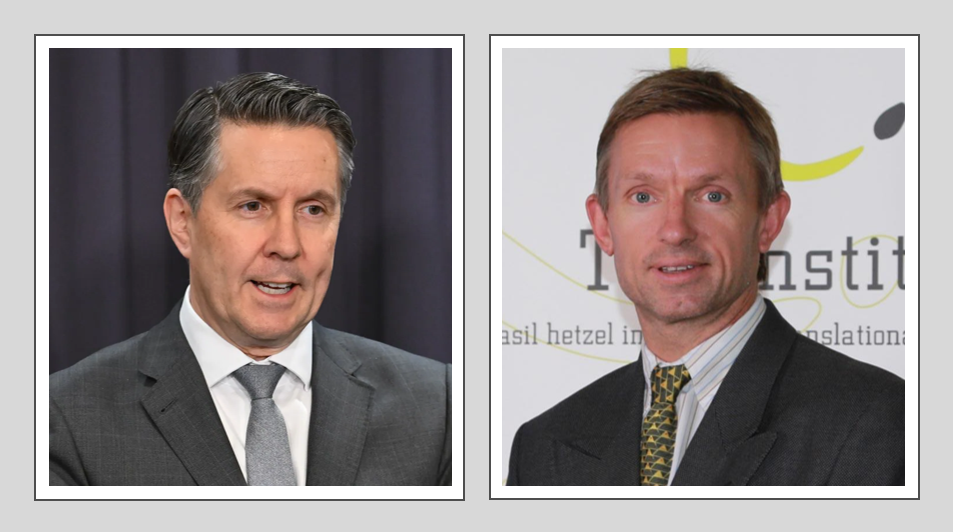News & Trends - MedTech & Diagnostics
Power of data and predictive technologies to extend access to care, say healthcare leaders

MedTech News: Emerging from the pandemic, healthcare leaders across Australia are embracing technology to extend access to healthcare.
Philips has announced the publication of its Australian Future Health Index (FHI) 2022 report. Now in its seventh year, the report is based on proprietary research from almost 3,000 respondents conducted across 15 countries, including Australia, and explores how healthcare leaders are harnessing the power of data and digital technology as they look to address their key challenges coming out of the pandemic.
While many healthcare leaders trust the insights data delivers, the report finds that they continue to face perennial barriers to effective data usage that stop them from fully utilising data and predictive analytics.
“The results of the 2022 report continue to show that Australian healthcare leaders believe digital technologies can solve some of the most pressing issues currently challenging our health system,” said Matt Moran, Managing Director of Philips Australia & New Zealand.
“Leaders across the Australian health sector need to collaborate and find ways to address these persistent barriers to make real progress with their priorities.”
Philips leader talks virtual care as key to a consumer-centric future of health
Australian healthcare leaders are emerging from the pandemic with an increased focus on social responsibility and are looking to digital solutions to support these goals. Investing in remote health technologies, such as telehealth, is seen as one of the solutions to extend access to care beyond existing facilities, with 36% of healthcare leaders saying this is currently a key priority, and 42% saying it will become even more important in the near future.
Timely access to specialist care for Australians living in remote or rural communities (around one third of the population) is challenging. Healthcare leaders see the potential technology holds to address some of these disparities, with 76% believing predictive analytics can positively impact health inequity and 77% believing it can help to reduce the cost of care.
In 2021, 4% of Australian healthcare leaders said they were focused on embedding sustainable practices in their healthcare facility. With calls growing across the sector to become more environmentally conscious, the 2022 FHI report shows that 31% of Australian healthcare leaders have put sustainability practices at the top of their present-day agenda, a figure significantly greater than the global average of 24%.
Australian healthcare leaders are data confident but say gaps in talent and technology infrastructure are impeding their ability to fully unlock the power of data. Although 78% say their healthcare facility can extract actionable insights from their available data, 74% of healthcare leader are frustrated by data silos that continue to hinder their organisation’s ability to utilise data effectively.
The pandemic has pushed the sector to the edge and healthcare practitioners are experiencing high degrees of burnout. 77% of healthcare leaders say their staff are overwhelmed by the volume of data available. Together with skills gaps and overall workforce shortages, one in four (27%) of healthcare leaders are prioritizing staff satisfaction and retention as a key priority.
As they seek solutions to these perennial issues, 42% of Australian healthcare leaders are agree the availability of data specialists would support them in using data more effectively, which is almost twice as high as the global average of 24%.
More than half (55%) of Australian healthcare leaders say they have adopted, or are currently in the process of adopting, predictive analytics. A vast majority of healthcare leader believe this technology can positively impact a wide range of areas, such as health outcomes, patient experience, population health management and cost of care.
Sixty-nine percent (69%) of Australian healthcare leaders say they are using predictive analytics in operational settings and 68% say they are using it in clinical settings. Despite having high levels of trust in both areas, Australian leaders are more likely than the global average to want transparency, data security regulations and success stories about predictive analytics in clinical settings.
News & Trends - MedTech & Diagnostics

Stryker partners with local researchers to advance shoulder joint surgery
MedTech & Diagnostics News: Joint replacement is a commonly performed major surgical procedure that has considerable success in alleviating pain […]
MoreNews & Trends - Pharmaceuticals

Over two-thirds of Aussies missing healthcare appointments
Pharma News: Over 70% of Australians have postponed or cancelled healthcare appointments in the last 12 months. The primary reason […]
MoreNews & Trends - Pharmaceuticals

Opposition decries incremental change as New Zealand government defends Pharmac budget
Pharma News: New Zealand’s Associate Health Minister has made headlines by unveiling Pharmac’s largest ever budget of $6.294 billion over […]
MoreMedical

Telehealth’s 10-year leap in 10 days: Reshaping hospital EDs
Medical: As overcrowding and ramping continue to challenge emergency departments across Australia, the concept of virtual emergency departments (EDs) emerges […]
More